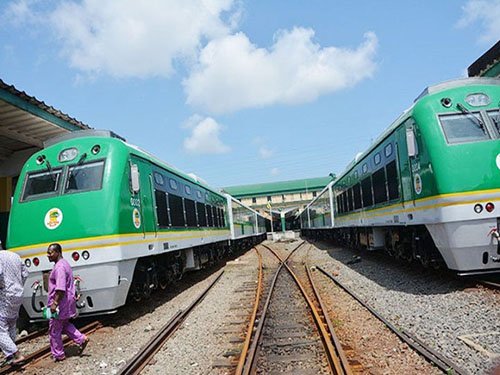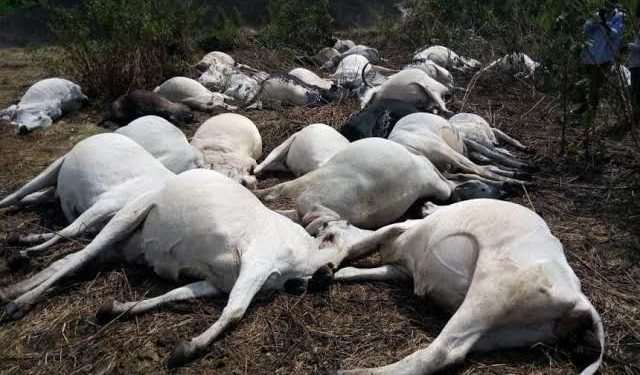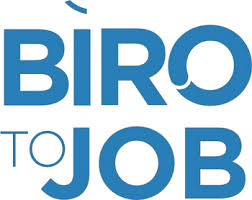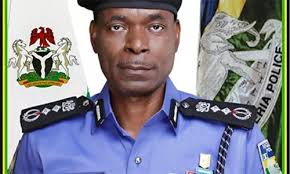Ticket racketeers invade Abuja-Kaduna rail station

Authorities are battling to curb the activities of ticket racketeers at the Abuja-Kaduna rail station, writes FAITH YAHAYA
The Abuja-Kaduna rail came alive in 2016 after it was inaugurated by President Muhammadu Buhari. For those who had not been born in the 60s and 80s when rail was one of the most vibrant means of transportation, it was a thing of amusement and an opportunity of a lifetime to ride.
Between 1963 and early 1980s, Nigeria had a vibrant rail system which conveyed agricultural, livestock and solid mineral resources to Lagos and Port Harcourt seaports from where they were exported to other parts of the world. Buhari had, at the commissioning, hinted that it’s the vision of his administration to restore the country to its good old days with the restoration of the rail transport system.
The hallmark during the flag-off was safety, speed and reliability. Three years down the line, one can say that the Abuja-Kaduna rail axis is drifting from the dreams the administration envisioned.
The bad road and prevalent insecurity in the country, and mostly on Abuja-Kaduna highway, has made people embrace the train service more. The Abuja-Kaduna highway is notorious for criminal activities, mainly kidnapping. The criminal act has resulted in passenger surge at the rail service, which plies the Abuja-Kaduna four times daily.
Heavy passenger traffic on Mondays and weekends, has made it difficult for passengers to secure seats in the coaches. This has forced many of them to opt for standing through the two-hour journey. And with a surge in passenger traffic comes the deplorable act of ticket racketeering by some railway officials.
Piqued by the ugly trend, the Minister of Transportation, Rotimi Amaechi, had, during one of his unscheduled visits to Idu and Kubwa stations, Abuja, sometime in 2017, ordered the immediate removal of the station manager, ticket sellers and porters at Idu and Rigasa. They were caught red-handed by the Minister in the act of ticket racketeering. But that seems not to have deterred the perpetrators of the act.
During the minister’s visit, it was learnt that some officials were extorting money from passengers in business class. The fare is pegged at N1500 for the first and last trip for economy class, while the second and third trips in the economy class are N1300. For the business class, the first, second, third and last trip remained N2500. However, some of the officials were discovered to have doubled the fare for desperate passengers.
Narrating how desperate passengers are extorted, one of the officials who didn’t want his identity disclosed said, “Those behind this act sometimes lie to passengers that there are no more tickets. Because of desperation, insecurity and probably because they have appointments to meet, they pay whatever amount to get on board.”
In recent times, some unscrupulous officials have devised other means of selling the tickets to desperate passengers at under-the-counter rates. And with the fear of sudden abduction on the Abuja-Kaduna highway, the hapless passengers are being forced to comply. These days, the fear of armed kidnappers is the beginning of wisdom for travellers, military chiefs not an exception.
And for their safety, many of these passengers do not care even if they have to stand all through the trip. Recently, a serving senator of the Federal Republic, Ali Ndume, had to stand throughout the two-hour trip from Kaduna to Abuja because he couldn’t get a seat in any of the coaches. Like ordinary Nigerians, the senior lawmaker had avoided the Abuja-Kaduna highway.
Giving hints of how they sell “standing tickets”, a source in Nigerian Railway Corporation said, “I can confirm to you that they sell more than 300 tickets to standing passengers per trip and we have four trips in a day. The days they make so much money are usually weekends and Mondays. Assuming that they sell the tickets at a flat rate of N1500 to the 300 standing passengers, it means they make nothing less than N450,000 for a single trip. And this excludes the seating passengers who are over 300 too. With this, it means about N1,000,000 is supposed to be recorded for the sale of tickets daily.
Another source in one of the stations revealed that some of the top staff members of the Corporation benefit so much from the sale of standing tickets. He said, “The officials are involved. The chain of corruption as it concerns ticket racketeering is long. So much money is made but the money is not remitted into the NRC’s coffers, which most people believe is the reason why NRC has continued to maintain that they are running at a loss.
“I suspect that they have duplicated the rail tickets. You know we Nigerians don’t pay much attention to things. I feel if more attention is given to the sale of tickets, the perpetrators will be fished out and the unwarranted stress they make passengers go through will stop.”
To reduce the pressure, the Minister, a few weeks back, directed the Managing Director of the Corporation, Fidet Okhiria to halt rail services on Itakpe-Warri route. The Minister said the coaches used on the axis should be deployed to Abuja-Kaduna rail line to cater to the passenger surges on the route. He also attributed the current surge to insecurity in some parts of the country.
The minister said: “We deployed coaches from Warri-Itakpe to feed Abuja-Kaduna axis because of the passenger surge. I have also told them to shut down Warri-Itakpe just to enable us to feed Abuja-Kaduna. But even if we do that, we will be taking away about 200 passengers and we will still be left with about 1,900 passengers to cater for.
“We are however expecting new coaches by November. By November, we should have new Diesel Multiple Units (DMUs.) We will introduce ten and I hope the ten can reduce the pressure. But even if it does not, between December and January, we will have more.”
On economic viability of the deployment, he said: “I tell people that it is not economically viable for NRC to operate with more coaches on Abuja-Kaduna route because the challenge we are facing now is temporary due to security pressure. Immediately the security pressure is resolved, we will go back to 300-400 passengers a day. So what happens to the excess capacity you have built? It will be a waste of money.
E-ticketing as solution
The NRC boss, Okhiria, in an interview, disclosed that over 112 companies applied for the online railway ticketing contract but that only three were shortlisted for the contract. According to him, the online ticketing will address issues of overcrowded stations, security challenges and ticket racketeering.
On the contract for online ticketing and when it is likely to start, Okhiria said, “It is not the online ticketing that is the problem. I can download an online app that people can use now. But we have to consider the hardware and secure the station so that people without tickets won’t access the platform.
“We also have to talk about the security of the online system we are putting in place so that the ticket can take them in. For instance, with online ticketing, if you buy a ticket to take you from Idu to Kubwa, the online platform must ensure that it does not take you beyond that. The physical infrastructure has to also be in place. If ten passengers enter the train, I should be able to look at it from my system. The Director of Operations has to be able to see it too. So, that is the way we are going. We want to have a system in which if you buy a ticket to take you to Kubwa, the ticket will not grant you access to go beyond that, as it is done outside the country. We need physical equipment on the ground to have it come to fruition.”
It is estimated that the e-ticket sale will generate N16 billion by 2029. The Director-General of Infrastructure Concession Regulatory Commission (ICRC), Mr. Chidi Izuwah, revealed that the sale of an online ticket for train services would hit N16 billion by 2029. He disclosed during the presentation of the Full Business Certificate for the concession of the e-ticketing system to the Minister of Transportation recently.
Izuwah said: “Financial model shows that NRC and the federal government will earn over N16 billion as revenue from e-ticketing by 2029. That will provide additional revenue for the government. So basically, we have turned a problem into an opportunity.”
Highlighting the benefits of the e-ticketing system, Izuwah explained that the objective of the project was to increase revenue generation through the reduction of fraud and also increase passenger fare purchase options. “We want to increase passenger convenience by introducing the fare dual hub. This will also improve service welfare to passengers and create a wider aisle of fare policies through additional added value because those tickets can also carry adverts and become a substantial part of revenue.”
Responding to the introduction of e-ticketing sale as the solution to ticket racketeering, the minister said: “I agree that it is a solution to the madness that we have in Rigasa station down to Idu. But the most important solution is the provision of more coaches and locomotives. This will go a long way to reduce the madness because if people can buy their tickets from their offices and homes, they will not be coming to the train station to cause the chaos we are seeing there. The moment we get more coaches, we will completely eradicate the current madness going on in the different stations between Rigasa and Idu.”
Most of the passengers in Kubwa station told The Nation that another unscheduled visit by the Minister would curtail ticket racketeering at the station.
One of them said: “We learnt that when the Minister paid an unscheduled visit to the station, some people involved in the act were caught and he directed that they should be sacked. I think that the Minister should pay another such visit soon to put things in shape and reduce the suffering of Nigerians. When the Minister visits again, I hope some of the infrastructures in the coaches and the stations would be looked at and fixed because the amount of money generated from the sale of tickets alone, if properly channelled, would contribute immensely to the country’s GDP.
As a response to the yearnings of the passengers, the minister had taken to his twitter handle @ChibuikeAmaechi, to announce taking delivery of the first batch of new trains built to ease passenger traffic.
The tweet reads: “1st batch of new trains built for us by CRRC- 2 motored cars and 4 Locomotives. I have taken delivery & they would soon be in Nigeria. Work is ongoing on the 2nd batch of trains. The plan is to connect & unite the entire country by rail. Together, let’s ride to the #NextLevel”.
On concerns over maintenance of the new trains, the Minister, via his Twitter handle, stated, “I have seen some comments here on maintenance & sustainability of the new trains. We are taking that issue seriously & have made plans for it. One of the many things we are doing is that we have sent Nigerians to China for training & to understudy the Chinese manufacturers. After their training, the plan is to have these Nigerians run & maintain the trains & our rail lines. I met some of them in China on Wednesday (last week) & they are very eager to come back home to manage & maintain the new facilities & trains. Building #NextLevel human capacit








